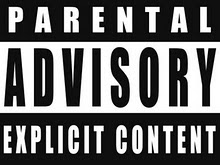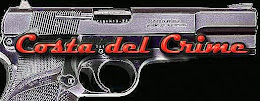Bosses of the Sumiyoshi-kai crime syndicate formally acknowledged their "employers' liability" for the death of one of three bystanders killed
Bosses of the Sumiyoshi-kai crime syndicate formally acknowledged their "employers' liability" for the death of one of three bystanders killed when members of an affiliate gang shot up a bar in Maebashi in 2003. The admission was part of a settlement reached Friday in a lawsuit filed by the family of one of the victims.
According to an attorney for the plaintiffs, Shigeo Nishiguchi and Hareaki Fukuda--Sumiyoshi-kai's top two leaders--agreed to pay 97.5 million yen in compensation to the plaintiffs, promised to prevent similar incidents and expressed regret to the victims' relatives. It is believed to be the first time that gang bosses have formally acknowledged their liability as employers for a crime committed by subordinates. On Jan. 25, 2003, two members of a gang affiliated with Sumiyoshi-kai fired a number of shots inside and outside a bar in Maebashi, killing four people and severely wounding two. A man formerly linked to a gang affiliated with the rival Inagawa-kai crime syndicate was killed along with three customers of the bar. One of the two people wounded was a former leader of the gang affiliated with Inagawa-kai.
The two attackers and their boss, who ordered the shooting, were arrested, convicted and sentenced to death. They have lodged an appeal with higher courts. In November 2006, three family members of one of the murdered bystanders filed a 197.6 million yen lawsuit against the two attackers, the senior member of the affiliate gang who ordered the attack, Nishiguchi and Fukuda. One of the two attackers agreed to pay his portion. The other attacker and the senior gang member were ordered by the high court to pay 88 million yen. The decision was finalized. The suit against Nishiguchi and Fukuda was separated as it involved employer liability. Earlier in the trial, Nishiguchi and Fukuda denied their employers' liability and sought to have the case dismissed. The court proposed a settlement in respect of the case in April.
The plaintiffs said they would accept the court-mediated settlement if the defendants would acknowledge their liability as employers. The defendants presented a settlement proposal earlier this month. Speaking at a press conference after the settlement was finalized, the eldest daughter of the victim said: "Since we sued gangsters, we've been fearful that we may lose more family members. We'll continue to be terrified, but now I'll tell my [late] father at the home altar that the Sumiyoshi-kai bosses acknowledged their responsibility." She was accompanied by her husband, who held a portrait of the victim. The plaintiffs' lawyers said in a statement, "The ruling will bring significant results in terms of relief from gang crimes and prevention of such crimes."
According to an attorney for the plaintiffs, Shigeo Nishiguchi and Hareaki Fukuda--Sumiyoshi-kai's top two leaders--agreed to pay 97.5 million yen in compensation to the plaintiffs, promised to prevent similar incidents and expressed regret to the victims' relatives. It is believed to be the first time that gang bosses have formally acknowledged their liability as employers for a crime committed by subordinates. On Jan. 25, 2003, two members of a gang affiliated with Sumiyoshi-kai fired a number of shots inside and outside a bar in Maebashi, killing four people and severely wounding two. A man formerly linked to a gang affiliated with the rival Inagawa-kai crime syndicate was killed along with three customers of the bar. One of the two people wounded was a former leader of the gang affiliated with Inagawa-kai.
The two attackers and their boss, who ordered the shooting, were arrested, convicted and sentenced to death. They have lodged an appeal with higher courts. In November 2006, three family members of one of the murdered bystanders filed a 197.6 million yen lawsuit against the two attackers, the senior member of the affiliate gang who ordered the attack, Nishiguchi and Fukuda. One of the two attackers agreed to pay his portion. The other attacker and the senior gang member were ordered by the high court to pay 88 million yen. The decision was finalized. The suit against Nishiguchi and Fukuda was separated as it involved employer liability. Earlier in the trial, Nishiguchi and Fukuda denied their employers' liability and sought to have the case dismissed. The court proposed a settlement in respect of the case in April.
The plaintiffs said they would accept the court-mediated settlement if the defendants would acknowledge their liability as employers. The defendants presented a settlement proposal earlier this month. Speaking at a press conference after the settlement was finalized, the eldest daughter of the victim said: "Since we sued gangsters, we've been fearful that we may lose more family members. We'll continue to be terrified, but now I'll tell my [late] father at the home altar that the Sumiyoshi-kai bosses acknowledged their responsibility." She was accompanied by her husband, who held a portrait of the victim. The plaintiffs' lawyers said in a statement, "The ruling will bring significant results in terms of relief from gang crimes and prevention of such crimes."









0 Response to "Bosses of the Sumiyoshi-kai crime syndicate formally acknowledged their "employers' liability" for the death of one of three bystanders killed"
Post a Comment
Note: only a member of this blog may post a comment.